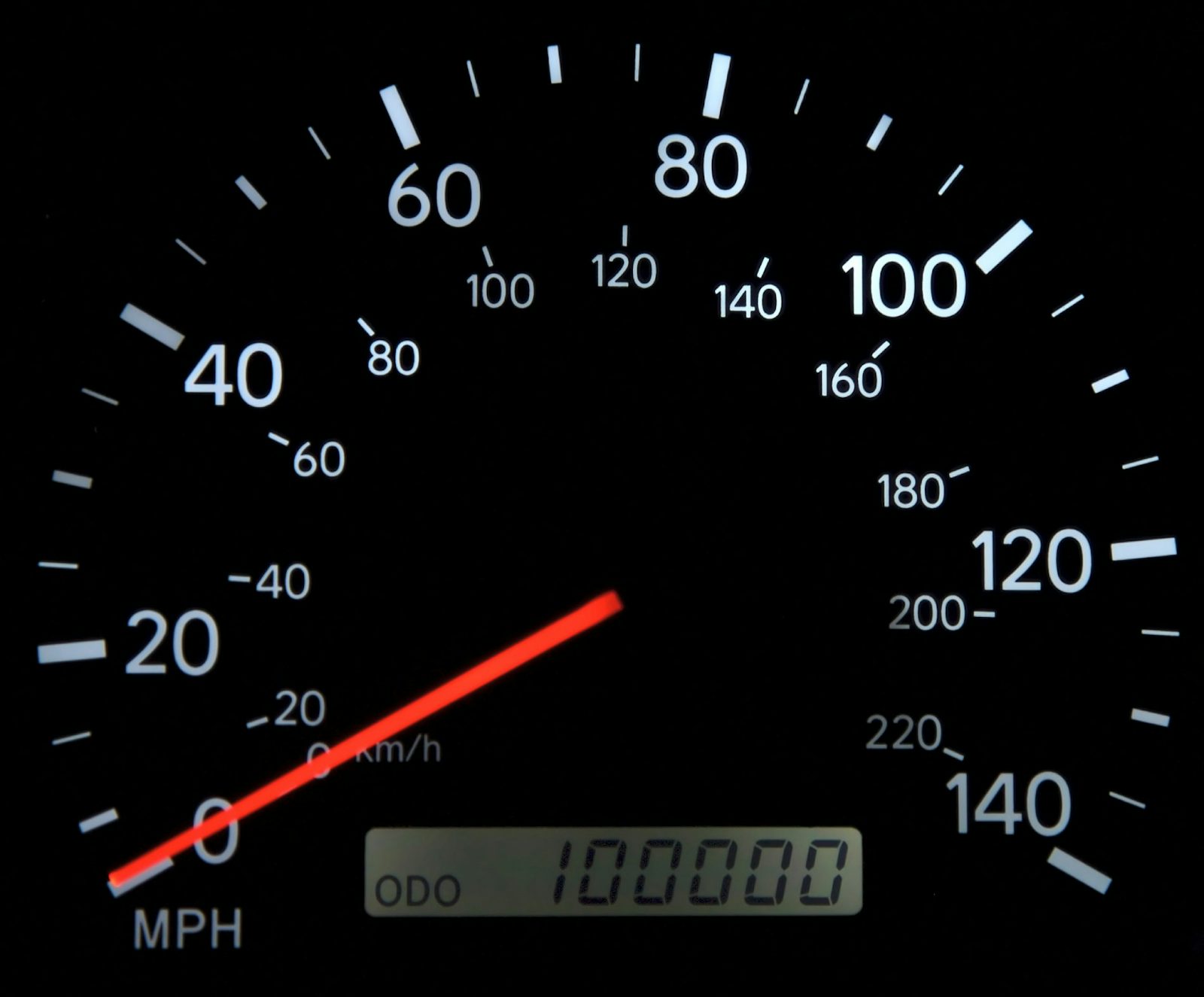How to get cheaper car insurance
June 05, 2024 by Tom Barnard

If you’ve taken a sharp intake of breath after opening your car insurance renewal notice, you’re not alone. According to official figures from the Association of British Insurers, premiums rose by a whopping 25% last year and are continuing to increase in 2024.
With such huge increases we are all looking for ways to keep the cost down, but not all of them are legal and you could void your cover and end up in court.
We’ve asked the experts for their top 15 tips to help save you money on your insurance, bust some myths and keep you on the right side of the law.
1. Compare car insurance quotes
Shop around. Don’t presume that your car insurance company is going to reward loyalty by giving you the lowest quote. They may try and use your ‘inertia’ to squeeze more money out of you, or maybe the broker is no longer able to offer a wide choice of policies, all of which will push your premium up.
Investing a few minutes to enter your details into a comparison site will usually save you a decent amount, or at least reassure you that your quote is competitive.

2. Compare insurance quotes early
It pays to get quotes nice and early, as the insurance companies’ algorithms show that people who are organised make fewer claims. Tom Banks, spokesperson for comparison site Go.Compare, said: “Our research shows that if you wait until the last minute – when your renewal is due – you could end up paying more. The cheapest time to buy car insurance is 27 days before your renewal is due. Doing so could save you over 44% on average, so it’s well worth being organised.”
3. Use your experience
Understandably, insurance companies want to build up a picture of what sort of driver you are before they price the premium. A no claims bonus (NCB) is the accepted way of proving that you’re a reliable sort, but if you haven’t been able to build up your own NCB then many companies will ask if you have been previously covered on another policy. That could be for a company car or as a named driver on someone else’s policy. If you can prove you’ve not had a claim, you might be entitled to a discount.
4. Multi-car insurance
If you have more than one car in the household then consider lumping the policies together in a multi car package. The insurance company knows that you can only drive one of your little fleet at a time so may well discount the premium.
It will also cut down on your admin, but check the prices every year to make sure it really is a good deal, and bear in mind that a claim could have a bigger impact on the price. That could be especially relevant if you are concerned about the driving abilities of anyone covered, such as teenagers.

5. Deal sweeteners
When you are comparing your quotes, have a look at the little extras the insurer might be throwing in to sweeten the deal. It could be something like key replacement or legal cover, but there are also supermarkets like Tesco who might offer loyalty club points which you exchange for money off your shopping. Check if it adds up to justify any extra premium.
6. Insurance excess
The excess on your insurance is the amount you will have to pay in the event of a claim. So, if you scrape your bumper on the gatepost and it costs £500 to fix, you might be asked to pay the first £250.
The insurance company will impose a minimum based on your age, experience and the car you want to cover but you can reduce the premium by accepting a higher excess – say £500.
Make sure you have the means to pay a bigger excess though, or you could be left without a car if you do need to claim.
7. Just the job
Insurers know from historical data that drivers in certain occupations make more claims than others. But the lines between the different job descriptions are a little hazy, which means you can try a few different titles to see if it makes a difference.
Tom Banks from Go.Compare, said: “When it comes to describing your profession, there may be multiple options that are accurate – and it can be worth testing out how these affect your premium. A ‘chef’ might pay a different premium to a ‘cook’, for instance, so test out the options available to you, as long as you’re still truthful.”

8. Just park
If your car is left outside on the road at night, it stands to reason that it is more likely to be damaged or stolen. So it might be worth moving the bins off the driveway so you can park there, or even getting rid of the junk in the garage so you can tuck your car away.
Tom Banks said: “Where you store your car overnight will have a bearing on the cost of your insurance, but it’s important to be honest with your insurer. Typically, parking in a garage or driveaway may be deemed the safer option – and therefore lower your premium – so if you have access to these spaces, make full use of them.”
9. Classic car insurance
If you are lucky enough to have a car which you just use for pleasure, such as a classic car, then you could have access to ‘cherished’ policies which are usually much cheaper than you’d expect.
Most ‘classic’ policies start when cars are at least 20 years old, but specialist brokers will consider covering younger models if they are not being used for commuting or business journeys, and you have access to another car.
Andrew Evanson from classic cover specialist Lancaster said: “My advice is to pick up the phone and talk to a broker. For these policies, we need to build up a profile of the person. If someone is an enthusiast who uses the car for pleasure, then insurers like it.”
10. Additional drivers
It might seem strange, but adding an extra driver to your policy could actually save you money – but only if they are considered a lower risk than you. The theory is that if they’re driving, then there is less likely to be a claim – so adding your librarian mother might save a few quid. Tom Banks said: “Adding a named driver could help lower your premium if the driver is experienced and has a clean record. Always be honest about who the main driver is, though.”
11. Go Pay As You Go
If you do need to let someone younger and more inexperienced drive your car occasionally, then it may well be cheaper to use a ‘pay as you go’ daily policy rather than adding them to the insurance for the entire year.
This is ideal for when your kids come back from university, for example, or if you are teaching someone to drive. Specialist insurers will even cover for a few hours and some offer rolling monthly contracts. The added benefit is that it won’t affect your no-claims if they have a bump.
12. Annual mileage
Most car insurance quotes will ask you to select the mileage you think you will cover each year. Don’t overestimate – check your MoT and service records to see at the actual distance you’ve covered in previous years to get an accurate figure, ignoring the lockdown era when we weren’t driving as much, of course.
Most quotes will default to 10,000 miles but you could save if it’s lower than this. Don’t be tempted to bluff though – the insurers will check if you make a claim.

13. Look at the interest and fees
If your policy is expensive, you may be tempted to choose the ‘pay monthy’ option to make it more manageable. But check out how much extra it will cost you in interest and fees – it can be extortionate. Other providers may have more expensive annual costs but be cheaper on a monthly basis. The comparison sites like Go.Compare will offer you the option to list the cost either way.
If you do take the monthly option, don’t be tempted to skip payments once you have the cover documents. Once you stop paying, the cover will cease, and you will no longer be covered. Your car will also show up on the police’s ANPR computers as uninsured and you will be pulled over.
14. Postcode lottery
It stands to reason that it is cheaper to insure a car in a remote rural area rather than an inner city, so it can be tempting to change your address to your nan’s place in the country to save money. But you risk all sorts of problems if you are stopped by the police or need to make a claim and have to explain why the car was parked at night on a side street 300 miles from your supposed home.
Tom Banks said: “It’s important you are accurate and truthful when supplying your details – so for instance, you must use the postcode of your residence where your car will be kept rather than anywhere you stay less frequently, or you risk invalidating your policy.”
15. Extras – read all about them
Not all insurance policies are the same, so it’s important to check that you are only paying for things you will need and value. For example, key replacement cover might be valuable if you have a modern car which might cost thousands if you need to have the locks changed and new keys supplied. You might also be covered for legal expenses and breakdown through other insurance policies or even your bank account.
You might also consider the customer service scores of the insurer and the cost of making any changes to the policy mid-term. Some will charge up to £50 if you buy a cherished registration number or move house, even if it’s not adding to the claims risk.
Looking for an easy way to change your car? Then Carwow is the place to go. You can sell your old car for a great price, and get the best deals on a new one. All through our network of trusted dealers and all from the comfort of your home. Tap the button below to get started today.














